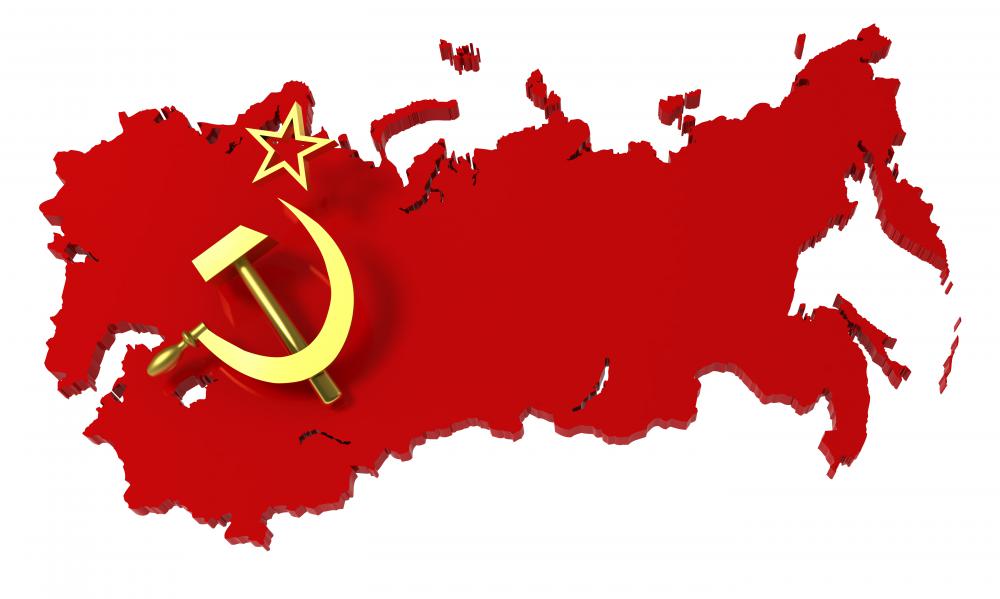At WiseGEEK, we're committed to delivering accurate, trustworthy information. Our expert-authored content is rigorously fact-checked and sourced from credible authorities. Discover how we uphold the highest standards in providing you with reliable knowledge.
What is the Outer Space Treaty?
The Outer Space Treaty is an international treaty designed to address concerns about the potential uses and abuses of space. It was developed in 1967 with cooperation between the United States and the then-Soviet Union, two nations heavily involved in the so-called space race. Signatories to the treaty agree to use space for peaceful purposes, to refrain from claiming celestial bodies as national territory, and to take responsibility for space activities originating in their borders, including both government and private space programs.
Formally known as the Treaty on Principles Governing the Activities of States in the Exploration and Use of Outer Space, including the Moon and Other Celestial Bodies, the Outer Space Treaty is closely modeled on the treaty developed to discuss the use of Antarctica. Antarctica is set aside as a global peaceful resource for scientific research and experimentation and people are not allowed to use or develop weapons of mass destruction on Antarctic territory, or to make exclusive claims on the use of this territory.

This treaty forms the basis of space law. Members of the Outer Space Treaty have agreed not to launch or use weapons of mass destruction in space, although there are no bans on conventional weapons. They must also use space responsibility, accepting liability for damages caused by research and equipment associated with national governments or private firms. Signatories are required to inspect and approve proposed space operations originating from within their borders and if a signatory has concerns about a proposal, a consultation can be requested to evaluate the situation and develop recommendations to address any issues uncovered.

Astronauts are accepted as envoys of humankind under the Outer Space Treaty, and as representatives of all humanity, they cannot claim land for their home nations or others. The treaty also forbids activities in space that might result in contamination or irreparable harm to objects found in space. All of these guidelines are intended to reserve outer space for peaceful purposes, recognizing the critical research performed in space, as well as the cultural value of outer space and space programs.

Numerous nations have signed and ratified the Outer Space Treaty, recognizing the aims set out in the document and agreeing to abide by it. As a basis and framework for space law, it is utilized in the United Nations and by a number of member nations in the development of laws pertaining to space, as well as space programs.
AS FEATURED ON:
AS FEATURED ON:















Discussion Comments
@Markerrag -- I do believe the official position of the Reagan administration is that the treaty was not violated because Star Wars didn't involve putting any nuclear weapons in space. Instead, it simply scanned for missiles and (in some iterations) fired projectiles that were not nuclear and were not considered weapons.
Of course, none of that mattered much as Star Wars didn't get far as it was expensive and relations between the U.S. and Soviet Union started to cool in Reagan's second term in office.
Still, there was a concern that allowing Star Wars to go up would alarm the Soviets, cause them to demand that the treaty be enforced and force someone to find a group that had the authority to tell the U.S. that Star Wars was a no-no. Thankfully, things never go to that point.
I've always wondered how Ronald Reagan's "Star Wars" initiative could be implemented without violating that space treaty. If the purpose of Star Wars was to destroy nuclear missiles by detecting them from space and firing projectiles at them, wouldn't that violate the treaty?
This was a landmark document for a number of reasons. For one thing, both the United States and the Soviet Union were worried about the potential for using space platforms to fire weapons. It took a lot of cooperation between two nations that hated each other to pull off that document.
For another, that treaty set a great precedent for implementing and enforcing international law in space. Whether you are for or against such a move, the fact that space is viewed as belonging to the nations of the world instead of just a superpower or two is significant.
Post your comments